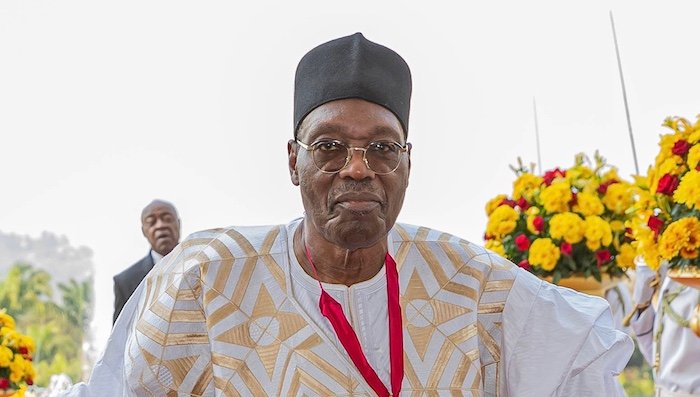Cameroon’s main opposition leader, Issa Tchiroma Bakary, has called for a three-day nationwide shutdown from Monday, November 3 to Wednesday, November 5, in protest against what he described as a “stolen victory” in the country’s October 12 presidential election.
Key Highlights:
- Opposition leader Issa Tchiroma Bakary rejects President Paul Biya’s re-election, calls it “truncated and stolen”
- Declares three-day ‘ghost towns’ nationwide to paralyze the economy in protest
- Calls for peaceful civil resistance across Yaoundé, Douala, Garoua, and other cities
- Security forces accused of killing protesters amid growing unrest
- Government remains silent as tensions rise ahead of November 3
The protest call comes days after Cameroon’s Constitutional Council declared 92-year-old President Paul Biya winner of an unprecedented eighth term with 53.66 percent of the vote. Tchiroma, leader of the National Salvation Front of Cameroon (FSNC) and the election’s runner-up, rejected the results, accusing Biya’s ruling Cameroon People’s Democratic Movement (RDPC) of large-scale vote manipulation.
In a viral video posted on social media, Tchiroma urged citizens to close all businesses, stay home, and halt economic activity in what he described as a “peaceful paralysis.”
“I therefore call on you, from Monday 03 to Wednesday 05 November, to observe dead cities,” Tchiroma declared. “Let the whole country freeze so the world knows we are resisting. Stay home in silence to show solidarity and remind this regime that the strength of an economy is its people and this people no longer recognizes it as its leader.”
Read Also:
- Cameroon opposition leader to face legal action over election unrest, government says
- Day 4 of Cameroon’s Post-Election Protests: Death toll rises as demonstrations rage on
- Cameroon’s 92-year-old President Paul Biya wins 8th term amid deadly post-election protests
Tchiroma also paid tribute to protesters reportedly killed during post-election demonstrations in Garoua and other northern cities. Rights groups say at least two civilians were shot dead and dozens arrested as security forces cracked down on rallies demanding election transparency.
The October 12 election was marred by low turnout, intimidation, and allegations of ballot fraud. While Biya’s party celebrated another victory, widespread unrest erupted in Douala, Bamenda, and Yaoundé, where police used tear gas and live bullets to disperse demonstrators.
The concept of “ghost towns” is not new in Cameroon. It has been a tactic of Anglophone separatists in the country’s northwest and southwest regions for years, often paralyzing local economies. However, this is the first time an opposition leader from the Francophone-dominated north is calling for a nationwide shutdown, raising fears of deeper unrest.
Government officials have yet to issue a formal response to Tchiroma’s call, though pro-government media have accused the opposition of “inciting instability.”
Reactions across social media were sharply divided. Supporters hailed the call as a “new phase in the struggle” against Biya’s 43-year rule, while critics warned that the move could “hurt ordinary citizens” who rely on daily earnings.
Analysts warn that the action could deal a severe blow to Cameroon’s fragile economy, already weakened by inflation and regional conflict. Yet, it also marks an unprecedented show of defiance against Africa’s second-longest-serving leader.
As Cameroon braces for November 3, all eyes are on whether Tchiroma’s “ghost town revolution” will paralyze the nation or collapse under the weight of government repression.






